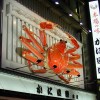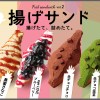You might not be as handsome and charming as the hostess would have you believe.
While being good-looking is a prerequisite to work in a Japanese hostess bar, it takes more than that to successfully keep customers coming back for more. Just as important is the ability to make patrons feel appreciated and confident, since they’re not just paying to look at the eye candy, but for the hostesses to sit and chat with them as they drink.
Considering how crucial this aspect of the business is, mangers obviously don’t want to rely on their hostesses’ natural friendliness alone. Just like hotels and restaurants have employee guidebooks that explain how to treat guests, so too do certain businesses in Japan’s fuzoku industry (a broad term that covers hostesses, hosts, strippers, sexy masseuses, and more) have a manual with suggestions about how to talk to customers.
Twitter user @nanpanman_kou claims to have gotten his hands on one such fuzoku employee manual, and recently shared a few pages from the tome.
風俗の接客マニュアル…。自分だけには特別とか思ってるヤツwww pic.twitter.com/l7Z006L3Lo
— ナンパンマン皇@ (@nanpanman_kou) January 26, 2016
Of particular interest is its list of conversation pointers. For example, since many hostess bar customers are entertaining clients or drinking with coworkers, and it thus stands to reason that many of them will show up in business wear, the manual recommends finding a spot in the conversation at which to exclaim “I love how guys look in a suit!”
Patrons wearing glasses should get a similar compliment, and “You look just like [insert name of popular celebrity]” or “You look like the guy I used to have a crush on” are also suggested ways to instantly put a guy in a good mood. But where things get especially crafty are the manual’s positive repackagings of specific traits, which end up as:
“You’re so manly and cool!”
“Wow, you sure are smart!”
“You’re so cute, like Winnie the Pooh!”
“You’re really toned!”
“You’re so mature!”
Most of those sound like pretty nice compliments, right? Except that using the manual, they translate as really meaning:
“You’re so hairy.”
“You’re a geeky otaku.”
“You’re fat.”
“You’re skinny.”
“You’re a totally average middle-aged dude.”
But perhaps more than any other, the manual’s line that shouldn’t be taken at face value is:
“When I’m spending time with you, it doesn’t feel like work.”
Fun as the fantasy may be, it’s probably a good idea to keep in mind that for fuzoku professionals, working at their job always involves working the customer.
Source: Hachima Kiko

 Japanese bar hostess goes too far with the compliments, scares customer into going home
Japanese bar hostess goes too far with the compliments, scares customer into going home Japanese bar hostess’ secret memo reveals how she really sees her customers
Japanese bar hostess’ secret memo reveals how she really sees her customers How sexy is Japan’s for-bar-hostesses “sexy mask?” Let’s find out【Photos】
How sexy is Japan’s for-bar-hostesses “sexy mask?” Let’s find out【Photos】 Japanese Twitter user’s plan to open virtual beautiful hostess bar hits major snag【Video】
Japanese Twitter user’s plan to open virtual beautiful hostess bar hits major snag【Video】 VR hostess cafe set to open in Japan to let you drink with cute anime girls【Video】
VR hostess cafe set to open in Japan to let you drink with cute anime girls【Video】 Highest Starbucks in Japan set to open this spring in the Tokyo sky
Highest Starbucks in Japan set to open this spring in the Tokyo sky Ghibli’s Kiki’s Delivery Service returns to theaters with first-ever IMAX screenings and remaster
Ghibli’s Kiki’s Delivery Service returns to theaters with first-ever IMAX screenings and remaster Yakuzen ramen restaurant in Tokyo is very different to a yakuza ramen restaurant
Yakuzen ramen restaurant in Tokyo is very different to a yakuza ramen restaurant Japan has only one airport named after a samurai, so let’s check out Kochi Ryoma【Photos】
Japan has only one airport named after a samurai, so let’s check out Kochi Ryoma【Photos】 The 10 most annoying things foreign tourists do on Japanese trains, according to locals
The 10 most annoying things foreign tourists do on Japanese trains, according to locals New Tokyo cat cafe filled only with “Apple Cats” who have feline AIDS
New Tokyo cat cafe filled only with “Apple Cats” who have feline AIDS Osaka icon loses legs, restaurant says famous crab is exhausted
Osaka icon loses legs, restaurant says famous crab is exhausted We mixed all 31 flavors of Baskin Robbins ice cream and created a Frankenstein dessert【Video】
We mixed all 31 flavors of Baskin Robbins ice cream and created a Frankenstein dessert【Video】 Fried sandwiches arrive in Tokyo, become hot topic on social media
Fried sandwiches arrive in Tokyo, become hot topic on social media Pro gamer has perfect comeback to Sega exec’s “He looks like he eats cheese beef bowls” insult
Pro gamer has perfect comeback to Sega exec’s “He looks like he eats cheese beef bowls” insult Starbucks Japan releases new sakura goods and drinkware for cherry blossom season 2026
Starbucks Japan releases new sakura goods and drinkware for cherry blossom season 2026 Naruto and Converse team up for new line of shinobi sneakers[Photos]
Naruto and Converse team up for new line of shinobi sneakers[Photos] Is Sapporio’s Snow Festival awesome enough to be worth visiting even if you hate the snow? [Pics]
Is Sapporio’s Snow Festival awesome enough to be worth visiting even if you hate the snow? [Pics] Japan has trams that say “sorry” while they ride around town…but why?
Japan has trams that say “sorry” while they ride around town…but why? Tokyo Skytree turns pink for the cherry blossom season
Tokyo Skytree turns pink for the cherry blossom season Sakura Totoro is here to get spring started early with adorable pouches and plushies
Sakura Totoro is here to get spring started early with adorable pouches and plushies Poop is in full bloom at the Unko Museums for cherry blossom season
Poop is in full bloom at the Unko Museums for cherry blossom season Shibuya Station’s Hachiko Gate and Yamanote Line stairway locations change next month
Shibuya Station’s Hachiko Gate and Yamanote Line stairway locations change next month Japan’s new “Cunte” contact lenses aren’t pronounced like you’re probably thinking they are
Japan’s new “Cunte” contact lenses aren’t pronounced like you’re probably thinking they are Japan’s newest Shinkansen has no seats…or passengers [Video]
Japan’s newest Shinkansen has no seats…or passengers [Video] Foreigners accounting for over 80 percent of off-course skiers needing rescue in Japan’s Hokkaido
Foreigners accounting for over 80 percent of off-course skiers needing rescue in Japan’s Hokkaido Super-salty pizza sends six kids to the hospital in Japan, linguistics blamed
Super-salty pizza sends six kids to the hospital in Japan, linguistics blamed Starbucks Japan unveils new sakura Frappuccino for cherry blossom season 2026
Starbucks Japan unveils new sakura Frappuccino for cherry blossom season 2026 Foreign tourists in Japan will get free Shinkansen tickets to promote regional tourism
Foreign tourists in Japan will get free Shinkansen tickets to promote regional tourism Take a trip to Japan’s Dododo Land, the most irritating place on Earth
Take a trip to Japan’s Dododo Land, the most irritating place on Earth Is China’s don’t-go-to-Japan warning affecting the lines at a popular Tokyo gyukatsu restaurant?
Is China’s don’t-go-to-Japan warning affecting the lines at a popular Tokyo gyukatsu restaurant? Survey asks foreign tourists what bothered them in Japan, more than half gave same answer
Survey asks foreign tourists what bothered them in Japan, more than half gave same answer Japan’s human washing machines will go on sale to general public, demos to be held in Tokyo
Japan’s human washing machines will go on sale to general public, demos to be held in Tokyo Starbucks Japan releases new drinkware and goods for Valentine’s Day
Starbucks Japan releases new drinkware and goods for Valentine’s Day We deeply regret going into this tunnel on our walk in the mountains of Japan
We deeply regret going into this tunnel on our walk in the mountains of Japan Studio Ghibli releases Kodama forest spirits from Princess Mononoke to light up your home
Studio Ghibli releases Kodama forest spirits from Princess Mononoke to light up your home Major Japanese hotel chain says reservations via overseas booking sites may not be valid
Major Japanese hotel chain says reservations via overseas booking sites may not be valid Put sesame oil in your coffee? Japanese maker says it’s the best way to start your day【Taste test】
Put sesame oil in your coffee? Japanese maker says it’s the best way to start your day【Taste test】 No more using real katana for tourism activities, Japan’s National Police Agency says
No more using real katana for tourism activities, Japan’s National Police Agency says Japanese eyeglasses are durable enough to withstand bouncing bar hostess butts, maker says【Video】
Japanese eyeglasses are durable enough to withstand bouncing bar hostess butts, maker says【Video】 Idol singer from Keyakizaka46 says she’s now working as a Tokyo bar hostess
Idol singer from Keyakizaka46 says she’s now working as a Tokyo bar hostess A visit to the real-world Like a Dragon/Yakuza cabaret in Osaka【Photos】
A visit to the real-world Like a Dragon/Yakuza cabaret in Osaka【Photos】 What’s it really like to work at Starbucks in Japan?
What’s it really like to work at Starbucks in Japan? Ramen and girls bar: Where you can talk to women who aren’t dressed like hosts or maids
Ramen and girls bar: Where you can talk to women who aren’t dressed like hosts or maids Five reasons your partner’s political apathy means you’d be better off without them
Five reasons your partner’s political apathy means you’d be better off without them Skull-shaped lollipop holders: Because liking candy doesn’t mean you’re not one bad dude
Skull-shaped lollipop holders: Because liking candy doesn’t mean you’re not one bad dude Is real Tokyo as dangerous as the Yakuza video games? Chapter 4: Not Like a Dragon
Is real Tokyo as dangerous as the Yakuza video games? Chapter 4: Not Like a Dragon Website lets you eat ramen with handsome actor – Great for fans, sort of awkward if you’re not
Website lets you eat ramen with handsome actor – Great for fans, sort of awkward if you’re not Tokyo lifehack: How to get rid of the “customer pullers” who’ll pester you in the bar district
Tokyo lifehack: How to get rid of the “customer pullers” who’ll pester you in the bar district